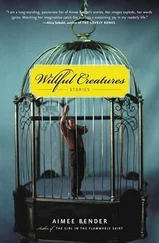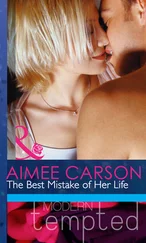One afternoon, Mom showed up with me on her hip, told the office Joseph had a doctor’s appointment, and took him out, right in the middle of the gym lesson on how to throw a ball. So he never learned to throw a ball. The office did not question the doctor’s appointment, and neither did the other students, because Joseph was skinny and pale and hunched and looked like he needed a lot of medical care. Mom walked us to the car and strapped me into my car seat.
What doctor are we going to? Joseph asked. Am I sick?
Not a bit, she said, driving out of the school parking lot and turning up the radio. Trumpets blared. You are perfect and perfectly healthy, she said. We’re going to the market.
What was he supposed to do, string mints all day? she asked me later, when remembering that year.
I was with them for all of it, but more like an echo than a participant.
That afternoon, the three of us went to the dress store, the farmers’ market, the dry cleaner. We drove the full length of Wilshire Boulevard, from the ocean to the heart of downtown, winding our way back home on 6th through the palaces of Hancock Park. Beneath tall graceful pines, planted in 1932 by the bigwigs of the movie industry. We stopped by the market to pick up ravioli and spinach for dinner. My mother was in between jobs that year, and she did not like to drive alone. Sometimes the two of them talked about how trees grew, or why we needed rain; sometimes they just sat silently while I threw cracker bits around the back seat. Mom loved to listen to Joseph-she nodded with encouragement at every single word he said. Occasionally, we’d pull over to the curb and she’d ask him advice on her life, and even at eight, he’d answer her questions in a slow, low monologue. She would hold tightly on to the band of her seatbelt and fix her eyes onto his, listening.
All this happened for many months, and no one mentioned anything to Dad, and all was fine until one afternoon when Joseph was at school, staying in during recess because he did not like to play dodgeball. The teacher was cleaning the blackboard with a damp cloth. Joseph was crouching on the floor of the classroom, analyzing the color gradation of the carpet fibers, when the teacher asked him, with great concern, if he was feeling any better. Joseph said he was feeling fine.
But the doctors must be giving you a lot of medicine? the teacher said. She was kind of a dumb teacher. I met her later and she cried a little when she met me, like I was going to torture her again with the Edelstein brilliance. When I told her that I wasn’t a genius, she visibly relaxed.
No, said Joseph.
But so what do they do, these doctors? the teacher asked, as she cleared the remaining bits of chalk off the board. Joseph was out of the classroom for most of the day, sometimes three times a week at that point. He didn’t answer. He squatted at the foot of her desk now, investigating the grain of the desk wood.
Joseph?
We go to the market, he said then.
You go to the market with the doctors?
Me and Mom, said Joseph.
Before the doctors? asked the teacher, slowing her hand.
It’s what the doctor ordered, said Joseph, looking up for a brief moment to catch her narrowing eye.
I knew the whole story backwards and forwards, because I heard it told and retold over the phone, to friends, to my father, to anyone, as my mother got investigated. She talked about it for years. A couple of social workers came by and asked her questions in the living room for two hours. The home-schooling contingency in the neighborhood dropped off a stack of handmade pamphlets. When Dad found out what was happening, he brought a notepad to the dinner table to try to understand, asking the same questions over and over while Joseph and I dug through our food. But explain again, he said, lowering his brow. Why were you taking him out? Because he is bored out of his mind, said Mom, waving her fork in the air. Let him discover the world on his own! Dad scribbled jagged lines on the pad. But you didn’t go to a museum , he said. You went to the dry cleaner. Mom gritted her teeth. He liked it, she said. Didn’t you learn something, honey? Joseph sat up straighter. They use liquid solvent but no water, he recited.
Mom had to be talked to by the president of student affairs and the school principal, and she was on mom probation permanently. A few years later, when she wanted to take me out of school for a real doctor’s appointment to deal with a stubborn flu, I had to wait in the main office, staring at the dark fishtank with the rows of tiny blue fish zigging and zagging, while the secretary called Dr. Horner to confirm my appointment.
Cough, Rose, Mom had said when we walked into the main office together. I let out a ripping bronchial spasm.
See? Mom said to the secretary. Can we go?
The secretary gave me a look of concern. I’m sorry, he said, wincing. School policy, he said. He was on hold at Dr. Horner’s for fifteen minutes, and we almost missed the slot. In the doctor’s waiting room, Mom flipped through the magazines like the pages needed to be slapped.

Those months of errands seemed benign: kid and Mom, going to stores together. It was even sweet, in a way. The social workers left the house that day holding slices of Mom’s freshly baked banana bread, calling thank you as they got into their car. As soon as Joseph was back in a regular school routine, Dad forgot all about it. But the one true result of all those absences was that Joseph, who was already unfriendly, made even fewer attachments in the classroom. He’d had a couple friends in earlier years-no one to bring home, but his conversation was peppered with repeated names-Marco, Marco, Marco, Steve, Marco, Steve, Steve. After that third-grade year, it changed to Them and They. They went out to recess. I don’t like them. They all played chess. They have fruit punch in their lunches; can I? Can I stay home? Not like any of this was a problem for Mom-she thought Joseph was perfect, even though he was often in a bad mood, rarely made eye contact, and ignored everyone. She called Joseph the desert, one summer afternoon when we were all walking along the Santa Monica Pier, because, she explained, he was an ecosystem that simply needed less input. Sunshine’ll do it for Joe, she said, beaming upon him. Joseph walked two feet to the side, absorbed in the game booths that lined the south side of the pier.
He is economical with his resources, Mom told me, since Joseph wasn’t listening.
And what am I? I asked, as we walked down the rickety wooden pathway that led to the end of the dock, where the fishermen stood all day with their old-style fishing poles.
You? she said, looking out over the water. Mmm. Rain forest, she said.
Rain forest, what does that mean? I asked.
You are lush, she said.
I need rain?
Lots of rain.
Is that good? I asked.
Not good or bad, she said. Is a rain forest good or bad?
What are you?
She raised her shoulders. I change around, she said. Like the Big Island in Hawaii.
You get to be Hawaii?
The Big Island. It has seven different climates. You can be Hawaii too, if you want.
Are you a rain forest?
I don’t think so, she said.
A desert?
Sometimes, she said.
A volcano?
On occasion, she said, laughing.
I went to walk by myself at the railing. The ocean looked specific and granular in the high heat. When we reached the very end of the pier, I stood by a short old Japanese fisherman who told me he had been there reeling up the mackerel since six-thirty in the morning. What time did you get up? he asked me. Seven, I said. I was already here, he said, looking at his watch. A full bucket of fish nestled at his feet, in a cooler. It was three-thirty. I’m still here, he said.
Читать дальше













